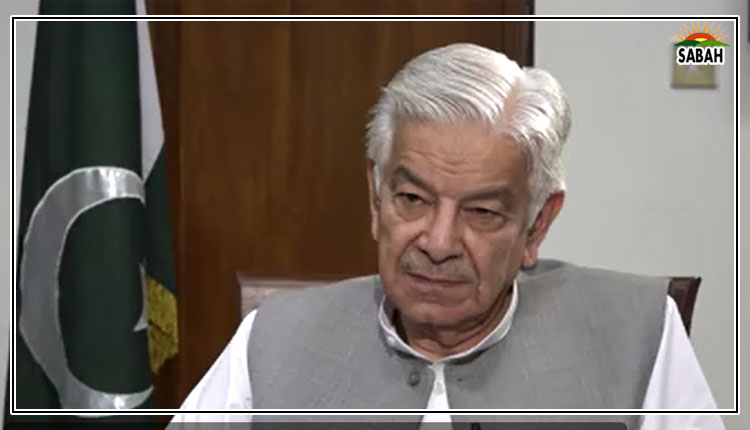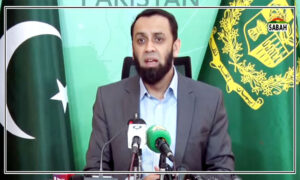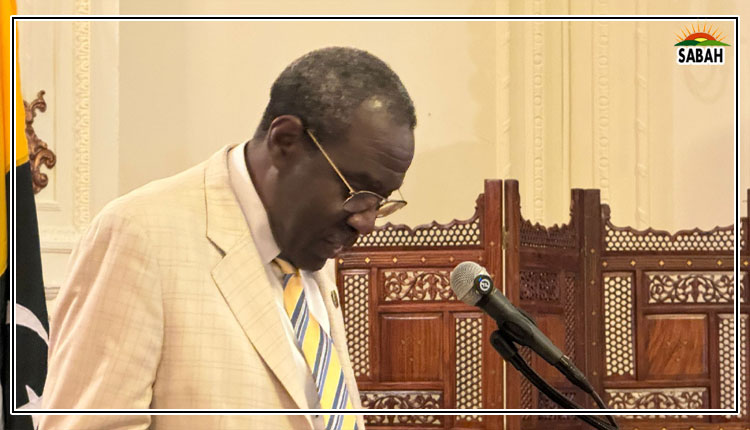OIC has adopted a plan of action aimed at ensuring the resolution of Kashmir: Ambassador Opeloyeru
NEW YORK, August 07 (SABAH): Ambassador Hameed Ajibaiye Opeloyeru, Permanent Observer of the OIC Mission to the United Nations was the guest of honor at an event marking the fifth anniversary of the unilateral actions of the RSS-led Modi government in Indian occupied Kashmir. He said that the occasion of the fifth anniversary of India’s illegal and unilateral action of 5 August 2019 in Indian-Occupied Jammu and Kashmir presents an opportunity to express our solidarity with the people of Indian-Occupied Jammu and Kashmir, in their long-standing just struggle for the realization of their fundamental human right to self-determination, in line with international law and resolutions of the United Nations. There is no doubt that the people of Jammu and Kashmir have continued to oppose this illegal occupation of their territory, despite the various measures taken to alter the demographic realities in the occupied territory. Equally ominous is the fact that this crisis has historically threatened peace, stability and security of South Asia.
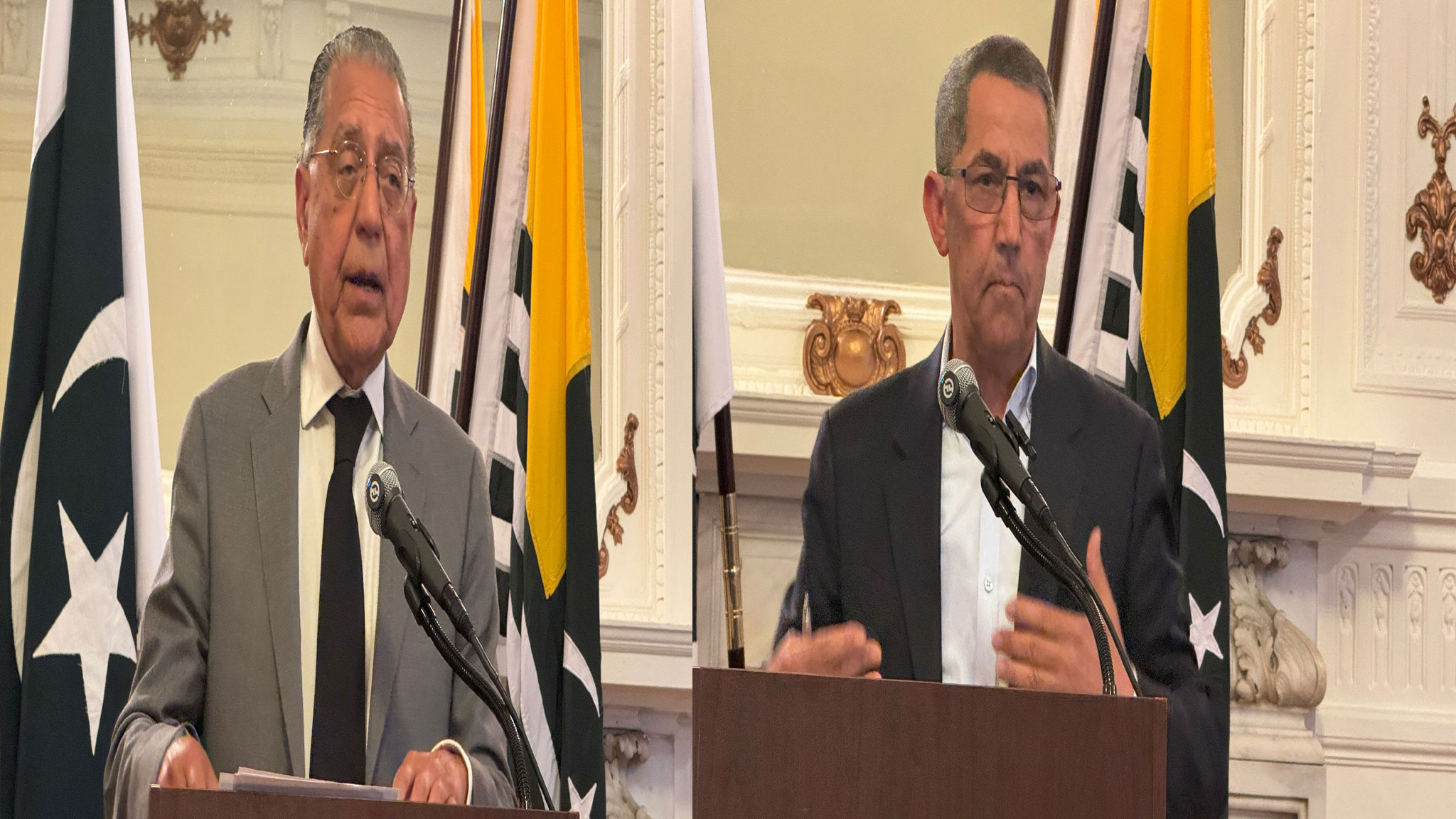
Ambassador Opeloyeru added that there is no doubt that the United Nations has been seized of the question of Jammu and Kashmir since the Security Council Resolution 47 of 21 April 1948. Accordingly, and in line with the principle of subsidiarity, the OIC, as a regional organization of 57 member states, recognizes the just and legitimate struggle of the people of Jammu and Kashmir to defend their right to self-determination, through exploring all legal, political and diplomatic avenues, leading to the realization of the national aspirations of the people of the Indian Occupied Jammu and Kashmir.
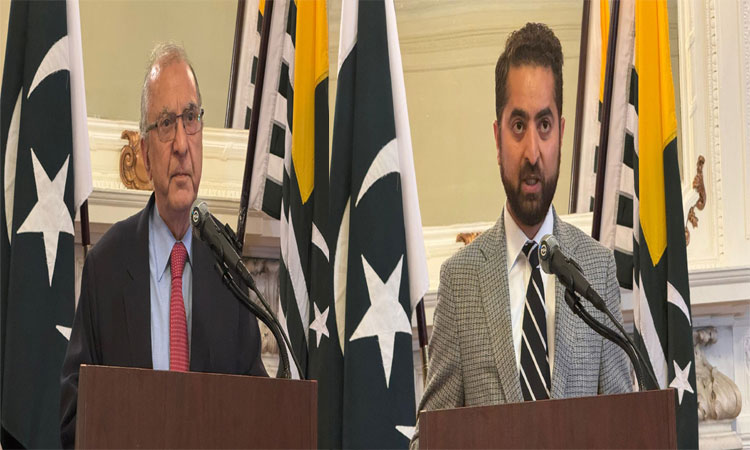
“On this auspicious occasion, it is significant to reiterate OIC’s call on all member states of the United Nations to encourage the implementation of the relevant UN Security Council resolutions on the peaceful settlement of the Kashmir dispute, in accordance with the wishes of the indigenous inhabitants of the territory. To this effect, the OIC has adopted a plan of action aimed at ensuring the expeditious resolution of this long-drawn crisis,” Amb. Opeloyeru concluded.
Ambassador Munir Akram, Pakistan’s Ambassador to the UN said that this is a somber anniversary, marking an act of blatant violation of international law, the UN Charter and resolutions of the Security Council. The illegality of India’s occupation of Jammu and Kashmir, its consequences and obligations of the occupying power, other States and the UN have been further reinforced by the recent Advisory Opinion of the ICJ on Palestine. The ICJ’s following main conclusions apply not only to Palestine but have become part of international law and apply mutatis mutandis, to Indian occupied Jammu and Kashmir:
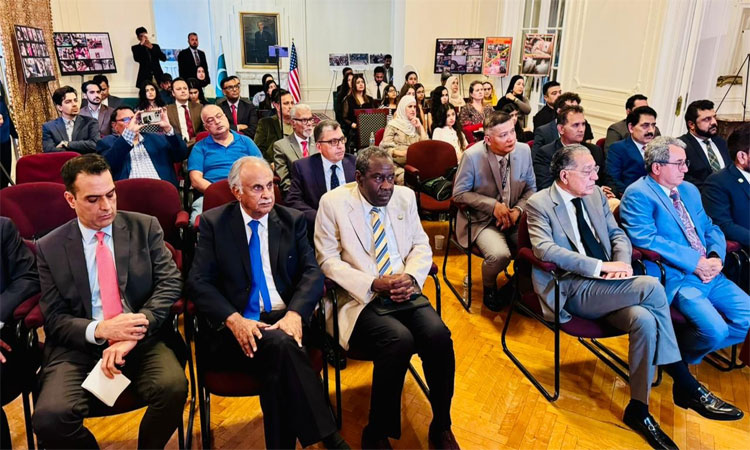
Ambassador Munir Akram added that the UN also has an obligation ‘not to recognize’ the illegal situation and to ‘consider further action’ to put an end to the illegal presence of the occupying power. Measures to impose national laws of the occupying power and establishment of its permanent control – also violate the Fourth Geneva Convention, the 2 international Covenants on Human Rights and the Convention against Racial Discrimination;
Ambassador Akram emphasized that the international law regarding occupied Jammu and Kashmir is crystal clear as are the political realities. At the UN, Pakistan’s endeavour will be to seek a resolution of the Jammu and Kashmir dispute on the UN Charter, the UN resolutions and the freely expressed wishes of the people of Jammu and Kashmir. The modality for the exercise of self-determination should be decided by the UN General Assembly or the Security Council. In the case of Jammu and Kashmir, the Security Council has already prescribed this modality – a UN-sponsored plebiscite.
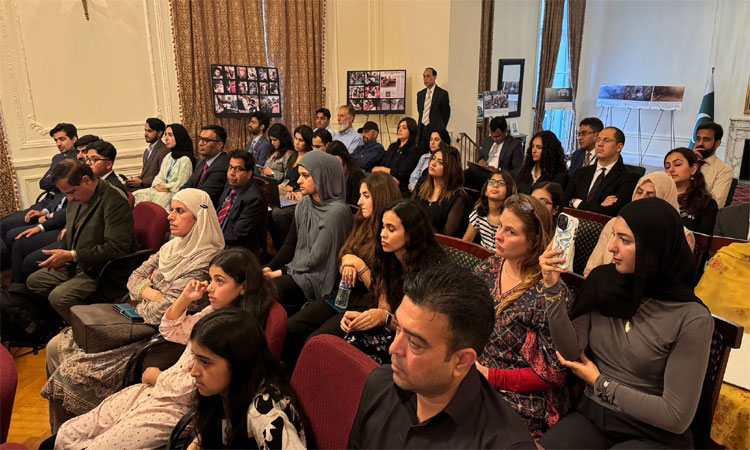
“Demographic and illegal changes made by the occupying power violate the principle of non-acquisition of territory by the use of force. In the case of Kashmir, they also violate Resolutions 47, 91 and 122 outlawing unilateral changes to the status of Jammu and Kashmir. Pakistan will seek the application of these conclusions of the ICJ in the case of Palestine as well as in the case of occupied Jammu and Kashmir,” Ambassador Akram said.
Dr. Ghulam Nabi Fai, Chairman, World Forum for Peace & Justice drew attention to the striking similarities between colonial-settler policies pursued by India in Kashmir and Israel in Palestine. Narendra Modi and Benjamin Netanyahu, he said, were acting upon identical policies.
Dr. Fai added that Palestinians have been living under 77 years of brutal Israeli occupation, and settler-colonialism. With a combination of forcible internal and external displacement, including the tiny, isolated enclave of Gaza which has been described by the international human rights organizations as “the world’s largest open-air prison. These atrocities and mass killings in Palestine resonate with the people of the Indian Occupied Kashmir, who have been denied their right to self-determination. Implementation of UN Security Council resolutions #43, #46 and # 48 in 1948 on Palestine, and UN Security Council resolution #47 in 1948 on Kashmir must be respected and implemented in both nations to bring about lasting peace in both conflicts.
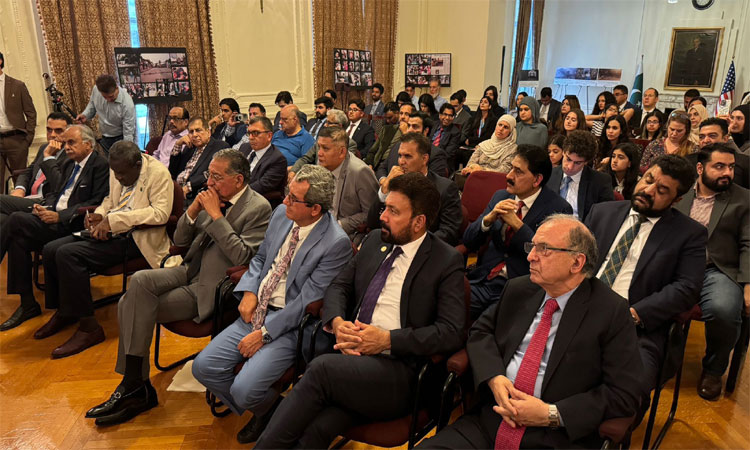
Fai said that through the illegal and immoral actions of August 5, 2019, and by enacting Domicile Law and issuing 4.3 million Domicile certificates is changing the demography of Kashmir. On the top of that, Modi Administration is seeking to deprive Kashmiris of their distinct religious, cultural and political identity, and underscored the need for consistent efforts to expose India’s violations of the UN Charter and international law in Kashmir.
Dr Abdelhamid Siaym, senior Palestinian journalist and professor said that both Palestine and Kashmir are the twin challenges to the world conscience. He suggested that Kashmiri brethren should take a leaf from Palestine struggle to effectively highlight the plight of Kashmiris globally. He pleaded that OIC should play a greater role in mobilizing global public opinion so that the people of Kashmir are given the right of self-determination.
Senator Lt. General (rtd) Abdul Qayyum said that the United Nations has failed to amicably resolve conflicts that involve the question of self-determination. Without re-energizing the UN Charter, the vision of a peaceful world will remain a pipedream. He said that young leaders such as Burhan Wani represent a new reality of Jammu and Kashmir which is animated by an aspiration for freedom from the Indian yoke.
Aamer Ahmed Atozai, Consul General said that the Indian government’s actions, aimed at demographic changes in Jammu and Kashmir, were a clear attempt to alter the region’s Muslim-majority character. Issuing over 4.2 million domicile certificates to non-Kashmiris, seizing land, and allowing non-Kashmiris to buy property and register to vote, are all part of a settler-colonial project that is a violation of international law.
“This project aims to disempower and disenfranchise the Kashmiri people, and it constitutes a war crime under international law.” Mr. Atozai added.





